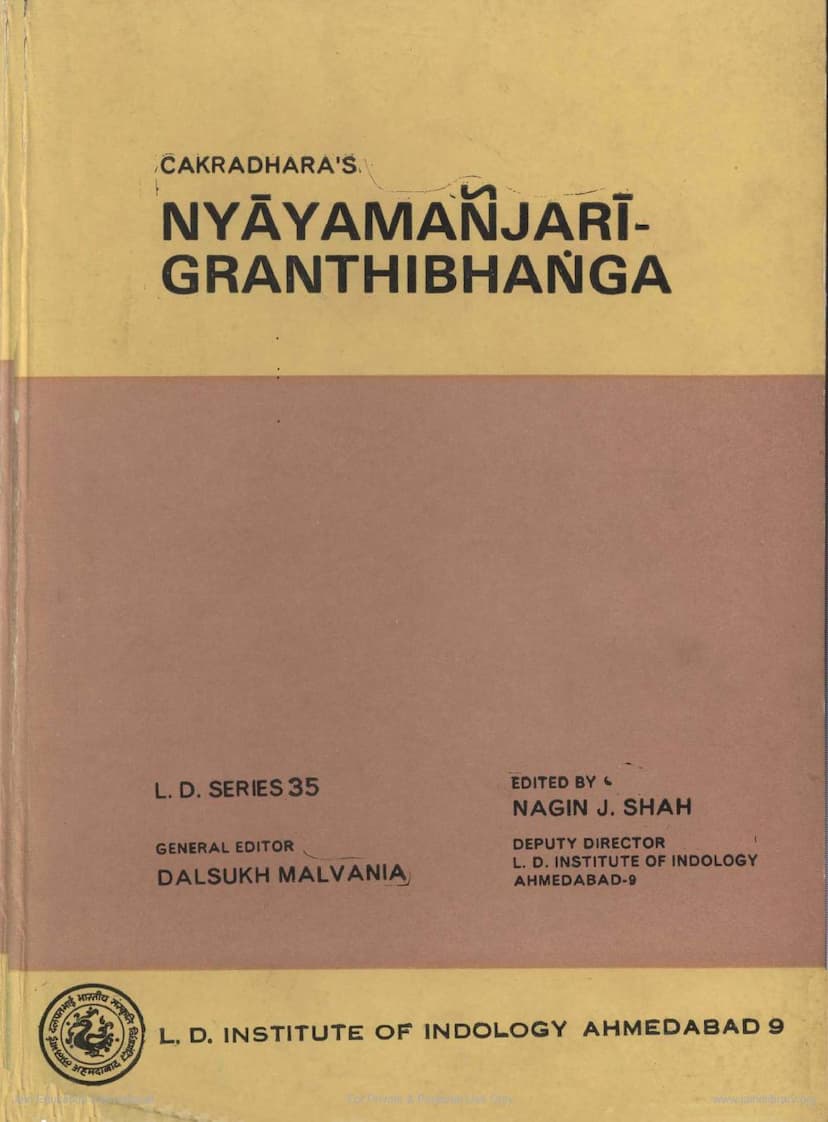Nyayamanjari Granthibhanga
Added to library: September 2, 2025

Summary
Chakradhara's Nyāyamañjarigranthibhanga is a commentary on Jayanta Bhatta's Nyāyamañjarī, a seminal work in Indian philosophy from around 900 AD. Chakradhara, who lived in the 10th or 11th century AD, aimed to clarify the difficult or "knotty" portions of Jayanta's work, as indicated by the title Granthibhanga, meaning "breaking of knots."
The commentary is significant because it is the only known commentary on Jayanta's Nyāyamañjarī that has survived. Chakradhara demonstrates a profound understanding of Buddhist, Nyāya, and Mīmāṁsā philosophies. He not only explains complex passages with insightful footnotes and indices but also provides a valuable introduction to the text.
Key aspects and contributions of Chakradhara's commentary highlighted in the preface and introduction include:
- Explanation of Difficult Passages: The primary purpose of Nyāyamañjarigranthibhanga is to untangle the intricate and sometimes obscure parts of the Nyāyamañjarī.
- Scholarly Depth: Chakradhara's commentary is highly valued for its learned nature, offering detailed explanations, critical notes, and various indices.
- Philosophical Acumen: He possesses a deep knowledge of various Indian philosophical schools, particularly Nyāya, Buddhism, and Mīmāṁsā, which he skillfully applies in his explanations.
- Textual Insights: Chakradhara sometimes offers alternative readings and explanations, contributing to a more critical understanding of the Nyāyamañjarī.
- Biographical and Historical Information: Chakradhara himself provides some personal details, mentioning his father, Śankara, and his teacher, Śaśāṅkadhara. He also provides context regarding Jayanta and his Nyāyamañjarī, including dating Jayanta to the reign of King Śankaravarman and his possible Kashmiri origin.
- Contextualization of Indian Philosophy: The introduction provides valuable context about the "triangular contest" of Indian philosophy between the 7th and 9th centuries AD, involving Buddhists, Mīmāṁsakas, and Naiyāyikas, with Jayanta's Nyāyamañjarī being a key text in this intellectual debate.
The L.D. Institute of Indology, Ahmedabad, published this commentary based on two manuscripts, one covering the first six āhnikas (sections) and the other the remaining ones. The edition was made possible by the dedicated work of Dr. Nagin J. Shah. The publication is considered to be of immense value to students of Indian philosophy.